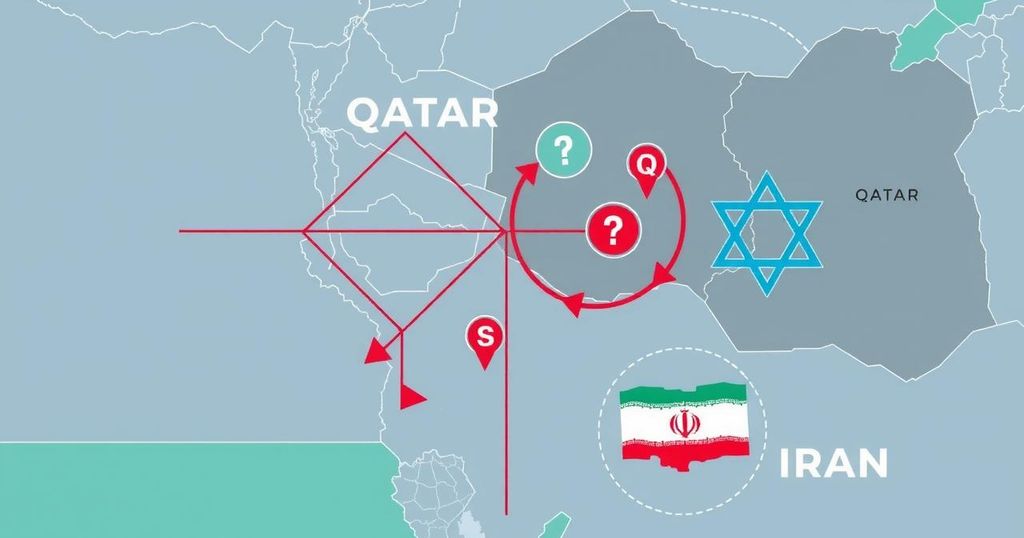Qatar’s Foreign Minister has warned of severe regional consequences if Iran’s nuclear sites are attacked, emphasizing water scarcity. Qatar criticizes Israeli claims regarding aid to Gaza and calls for IAEA regulation of Israeli nuclear facilities. This is part of Qatar’s strategic effort to bolster its diplomatic role in the region amid ongoing U.S.-Hamas negotiations.
Qatar has escalated its criticism of Israel, particularly concerning potential military actions against Iranian nuclear sites. During a recent interview with Tucker Carlson, Qatar’s Foreign Minister emphasized the dire consequences of such attacks, warning that the Persian Gulf states could face water shortages within three days due to contamination. This stance serves to advocate for diplomatic solutions rather than military confrontation between Iran and Israel, aligning with Qatar’s broader diplomatic strategy.
Recent comments from Qatari officials also reflect dissatisfaction with Israel’s Shin Bet agency, which accused Qatar of financially supporting Hamas. Qatar firmly rejected these allegations, framing them as politically motivated deflections within Israeli politics. This rhetoric comes as Qatar seeks to exert influence over regional discussions, particularly related to Gaza, where it is currently facilitating ceasefire negotiations that place it in a powerful position.
Qatar has called for the regulation of Israeli nuclear facilities by the International Atomic Energy Agency (IAEA) and urged Israel to sign the Non-Proliferation of Nuclear Weapons Treaty (NPT). This diplomatic maneuver appears to be a calculated effort to pressure Israel amid ongoing tensions in the region. Concurrently, the United States is engaging in direct talks with Hamas, suggesting a shifting power dynamic in the negotiations involving Gaza.
The Foreign Minister’s interview and comments have been positively received in Iranian media, indicating a strategic alliance or at least a closer collaboration between Qatar and Iran regarding regional issues. Al Thani expressed a commitment to peaceful negotiation, asserting, “We do not support any military action in this region.” This reveals Qatar’s ambitions to position itself as a mediator while concurrently heightening its political leverage over Israel and the United States as negotiations progress.
The developments indicate Qatar’s multifaceted approach to regional diplomacy. By increasing its vocal opposition to Israeli policies, hosting dialogues on critical issues, and advocating against military action, Doha aspires to solidify its role as a key player in Middle Eastern geopolitics. This strategy also seeks to engage with right-leaning media audiences, aiming for broader support as discussions with the U.S. regarding hostages and regional peace continue to unfold.
In summary, Qatar’s intensified critique of Israel and its warnings regarding potential military actions against Iran mark a significant shift in regional diplomacy. By leveraging media platforms and advocating for diplomatic resolutions, Qatar is asserting itself as a crucial mediator and influencer in Middle Eastern affairs. The evolving dynamics also highlight Qatar’s attempt to balance its relationships with both Iran and the United States while advocating for regional stability and cooperation.
Original Source: m.jpost.com




